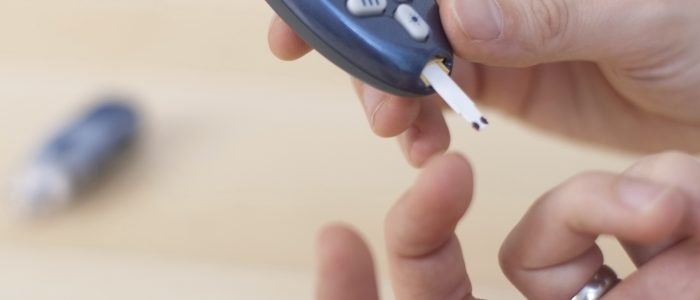If you have perused the online recommendation for the symptom of high blood sugar, you have probably come across berberine sulphate. Berberine is the extracted alkaloid from the Oregon grape / barberry family of plants. It has potent hypoglycemic effects, and beginning around 1990, has been confirmed as a useful substance to help improve blood sugars, while lowering insulin and central body fat distribution. It has won a reputation for being “like metformin,” the common first-line drug for type 2 diabetes.[1]
The mechanism for berberine extract is very unclear. For decades it has been a well-researched herbal treatment for intestinal infections, like Giardia, but it came with the warning to avoid long-term use due to the potential undesirable and antimicrobial effect in the gut. Significant gastrointestinal side effects are well documented with berberine extract studies.
The gastrointestinal side effect of malabsorption is likely the primary reason why berberine lowers post-meal blood sugar; the herb is not absorbed, and acts within the gut to cause malabsorption of glucose and potentially other important nutrients.[2] In the type 2 diabetes study, over 30 percent of the subjects that took berberine sulphate had side effects including digestive distress, nausea, and diarrhea.[3] The frequency of GI side effects reinforces how the herb likely works to reduce blood sugars—by creating malabsorption, so the meal nutrients go right through.[4] It is better for you to put less carbohydrate in your mouth than to take a drug that causes gastrointestinal irritation and interferes with nutrient absorption. This extract is available over the counter, but at this time, I don’t recommend pursuing this herbal extract as therapy for hyperglycemia or type 2 diabetes.
[1] Zhang, H., Wei, J., Xue, R., et al. Berberine lowers blood glucose in type 2 diabetes mellitus patients through increasing insulin receptor expression. Metabolism 2010; 59:285–92.
[2] Pan, G. Y., et al. Inhibitory action of berberine on glucose absorption. 2003 Dec; 38(12):911–4.
[3] Jun, Y., et al. Efficacy of berberine in patients with type 2 diabetes. Metabolism. 2008 May; 57(5): 712–17.
[4] Li, Z. Q., et al. Berberine acutely inhibits the digestion of maltose in the intestine. J Ethnopharmacol. 2012 Jul 13; 142(2):474–80.




Comments are closed.